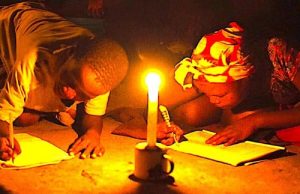Over the past decade since privatization, Nigerians have been experiencing constant power outage which is due to the constant collapse of national grid.
About 141 collapses have been noted till present time, underscoring the magnitude of the systemic challenges facing the industry. This has plunged it’s citizens into darkness
Some Nigerians have expressed mixed feelings over the current situation at hand, business owners find it difficult to carry out their business effectively due to the power outage, persons have been plunged into debt to the cost of running of other means of electricity.
A good number of companies have shut down due to this effect, most have relocated to other countries with constant power supply.
Hospitals are not left out in this plight, some patients have lost their life due to this ugly situation of the nation.
Reports has it that University College Hospital, (UCH), Ibadan , which was commissioned on 20th November, 1957, is the first teaching hospital in the country.
The tertiary health institution is currently in total blackout after it was disconnected from the national grid by Ibadan Electricity Distribution Company (IBEDC) on Tuesday, 19th March, 2024.
The hospital board described the situation as worrisome, with some of them querying what the hospital was doing with the money being generated daily.
An-Ibadan based man said that prolonged power outages were not new in UCH. The middle aged woman, who gave birth to a baby last year, narrated how she quickly took her daughter to a private hospital due to a power outage in the hospital.
“If Nigeria will be a better place, we all must be ready to do the right thing, as simple as obeying traffic orders, which many of us in this community do not do.
“Many of us are also corrupt and contributing to the problem of Nigeria”.
Between the year 2017 to 2024 the national power grid has collapsed about 46 times a report by the International Energy Agency said in a report.

The minister for power Mr Adebayo Adelabu has reassured the public that the outage which affected the 36 states will be fully restored soon, in no time.
Still, it is unlikely due to inadequate infrastructure, gas supply problems, and transmission system constraints. The collapse of the national grid is a significant setback for Nigeria’s economy and development. Due to power outages, Nigeria is estimated to lose billions of dollars annually.
After investigations, it’s clear that the main cause of poor power supply is the low supply of gas to GenCos.” The Transmission Company of Nigeria (TCN) had in January said that there was a gradual decrease in available generation into the grid due to gas constraints
This incident marks another setback for Nigeria’s electricity sector, which has been marred by persistent issues despite privatisation efforts aimed at revitalization.